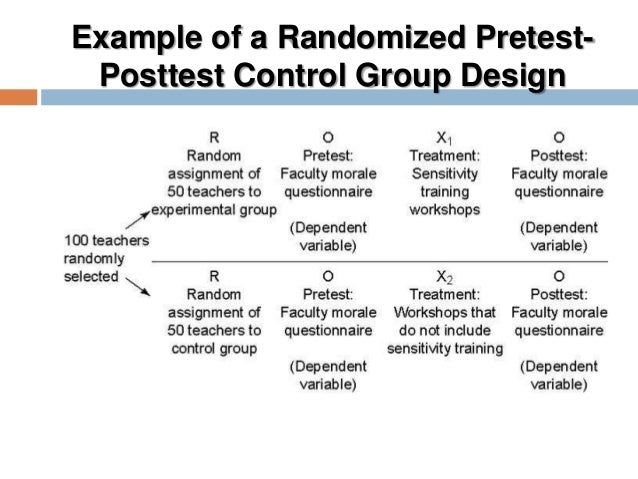Randomized Control Group Pretest-Posttest Experiment
A Randomized Control Group Pretest-Posttest Experiment is a pretest-posttest experiment that is a randomized experiment.
- Context:
- It can range from being a Randomized Control-Group Pretest-Posttest Experiment to being a Randomized Solomon Four-Group Experiment).
- …
- Counter-Example(s):
- See: Posttest-Only Experiment.
References
2014
- Kavitha Prabakar. (2014). “Experimental Designs Completely Randomized Design Randomized Block Design, Latin Square Design, Other Designs." Presentation
- QUOTE: ...

- QUOTE: ...
2003
- (Dimitrov & Rumrill, 2003) ⇒ Dimiter M. Dimitrov, and Phillip D. Jr Rumrill. (2003). “Pretest-Posttest Designs and Measurement of Change.” In: WORK: A Journal of Prevention, Assessment and Rehabilitation, 20(2).
- QUOTE: Pretest-posttest designs are widely used in behavioral research, primarily for the purpose of comparing groups and/or measuring change resulting from experimental treatments. The focus of this article is on comparing groups with pretest and posttest data and related reliability issues. In rehabilitation research, change is commonly measured in such dependent variables as employment status, income, empowerment, assertiveness, self-advocacy skills, and adjustment to disability. The measurement of change provides a vehicle for assessing the impact of rehabilitation services, as well as the effects of specific counseling and allied health interventions. ...
... This section addresses designs in which one or more experimental groups are exposed to a treatment or intervention and then compared to one or more control groups who did not receive the treatment. ...
Design 1: Randomized control-group pretest-posttest design
With this RD, all conditions are the same for both the experimental and control groups, with the exception that the experimental group is exposed to a treatment, T, whereas the control group is not. Maturation and history are major problems for internal validity in this design, whereas the interaction of pretesting and treatment is a major threat to external validity
- QUOTE: Pretest-posttest designs are widely used in behavioral research, primarily for the purpose of comparing groups and/or measuring change resulting from experimental treatments. The focus of this article is on comparing groups with pretest and posttest data and related reliability issues. In rehabilitation research, change is commonly measured in such dependent variables as employment status, income, empowerment, assertiveness, self-advocacy skills, and adjustment to disability. The measurement of change provides a vehicle for assessing the impact of rehabilitation services, as well as the effects of specific counseling and allied health interventions. ...